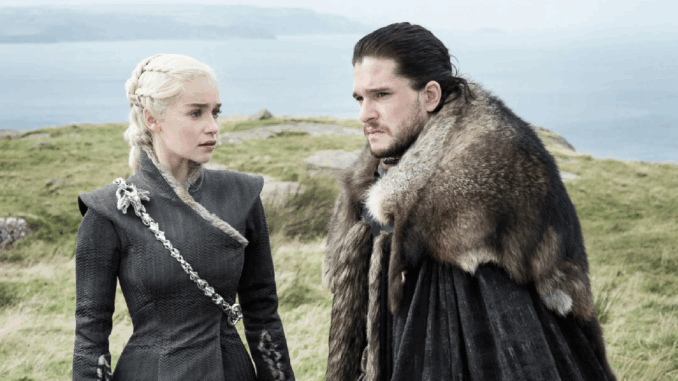
Game of Thrones is one of the biggest — and more controversial — shows in television history. Yet despite its fantastic run, there are some things about it many fans just don’t want to admit.
Hello and welcome; it is time for some takes so hot you’ll wish you had dragon fire around to cool you off. I come to wage war on your closely held nerd beliefs and inform you about some things that, maybe in your heart of hearts, you know but don’t want to admit about Game of Thrones. HBO’s massive fantasy series based on the work of George R.R. Martin needs no introduction; during its day it was such a phenomenal hit that it has reshaped the television landscape in its image. Before Thrones, big budget fantasy shows were few and far between. Since it aired, you can hardly turn on the TV without an ad for some new one coming down the pike.
Despite its success, Game of Thrones has plenty of controversial points, too. Some of those are well-earned; others, we can all argue about until our houses swear to become mortal enemies for generations to come.
But since this is a one-sided debate where I am writing the words and you’re reading them, allow me to put on my maester’s chain and regale you with five particular things that many Game of Thrones fans just don’t want to admit. Come for me in the comments, if you dare. Let’s start with the big one:
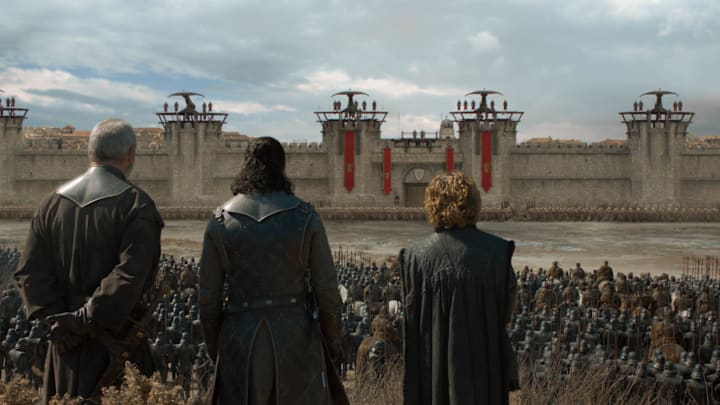
Game of Thrones season 8 isn’t that bad
Yes, you read that right.
The final season of Game of Thrones has become a thing of infamy at this point. Across six episodes, the show swiftly wrapped up long-simmering plotlines and killed off many of our favorite characters — though perhaps not so many as we may have expected, given how many leads survived the White Walker invasion.
Once viewers had a chance to see how it all ended, the backlash was severe. People raged on the internet, with some even going so far as to start a petition to “remake Game of Thrones season 8 with competent writers” instead of showrunners David Benioff and Dan Weiss. That petition reached nearly two million signatures, all from people who, for one reason or another, blamed Weiss and Benioff for Thrones‘ shaky landing. Never mind that they were the ones who got the show made in the first place and served it well for more than a decade.
To this day it’s hard to bring up Game of Thrones without people bemoaning its awful ending. But here’s the thing: Game of Thrones season 8 is certainly not the strongest of the series…but it’s also not as horrible as the discourse makes it sound. Not even close.
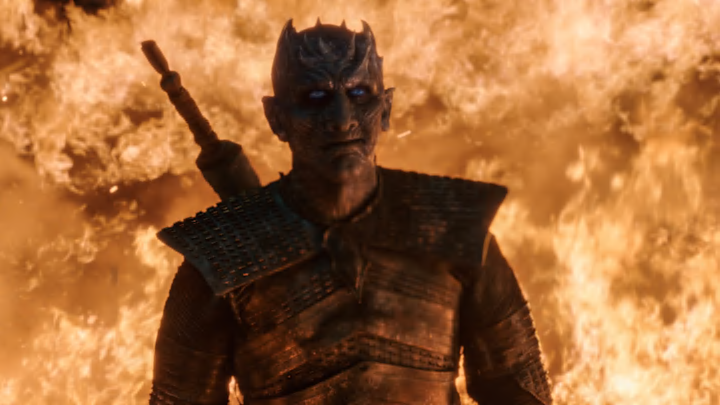
Yes, Thrones rushed things at the end. Yes, there were elements which needed more time to breathe and characters who needed more screen time for us to understand their big decisions. Yes, I too wish Game of Thrones had stopped to smell the corpse-strewn roses a little longer during the White Walker invasion before hastily wrapping up the longest-running plotline of the show in a tight two episode sequence.
But Game of Thrones season 8 is far from the trash heap that many fans would lead you to believe. I’ve rewatched it recently, and while the overall immersion of the show is less than what it was in prior seasons, season 8 is still perfectly watchable. In fact, there are lots of great moments, such as Arya’s shanking of the Night King (and “The Long Night” in general), Brienne of Tarth being knighted by Jaime Lannister, Clegane Bowl, Drogon melting the Iron Throne and more. Those moments would have meshed better with more connective tissue, but to discount the work that hundreds of cast and crew members put into making arguably the most ambitious season of television of its day shouldn’t be cast aside because of that.
Sometimes when a show is really going off the rails, it’s obvious people are checking out and the end result reflects that. The final season of Dexter comes to mind as a good example. But with Thrones, it’s very clear that everyone involved did their absolute best to make a good season of TV, and against most of the shows that have of what’s come after, it still stands as relatively solid. Speedy plot contrivances aside, there’s far more good than bad in Game of Thrones season 8 once you lay down your grievances and watch it on its own terms.
Game of Thrones season 8 isn’t the best season of the show. And it isn’t the worst (looking at you, season 7). It’s just a work of art like any other with its flaws and its virtues, with that balance skewed a little more toward flaws in part because so much of what came before it was so excellent.
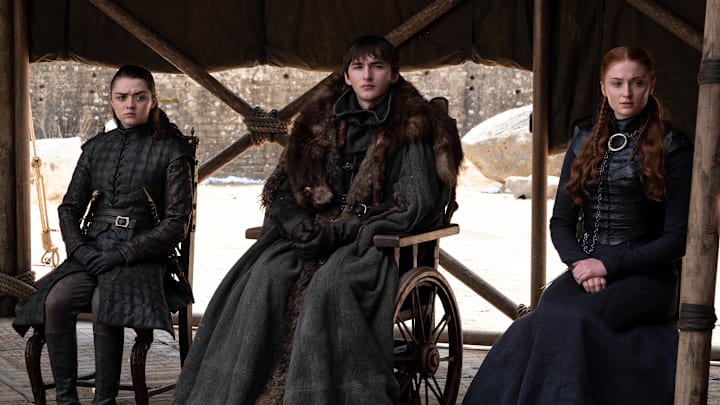
Bran Stark was the right choice to end up king
An oft-derided part of Game of Thrones season 8 is that Bran Stark, the boy who survived a fall that left him paralyzed from the waist down and went on to become an omnisicent being called the Three-Eyed Raven, was selected to become the next king of Westeros. This all comes together pretty quickly during the season finale, where a council of lords and ladies from the remaining great houses chooses who will become their next ruler.
Having already put the pieces together in his head, Tyrion Lannisters puts in for Brandon Stark. And so, Westeros enters into a new era of prosperity with Bran on the throne. No more terrible heirs or familial drama; Bran hardly even wants to hang out with normal mortal people anyway. He’s above all that! Thus, the perfect ruler.
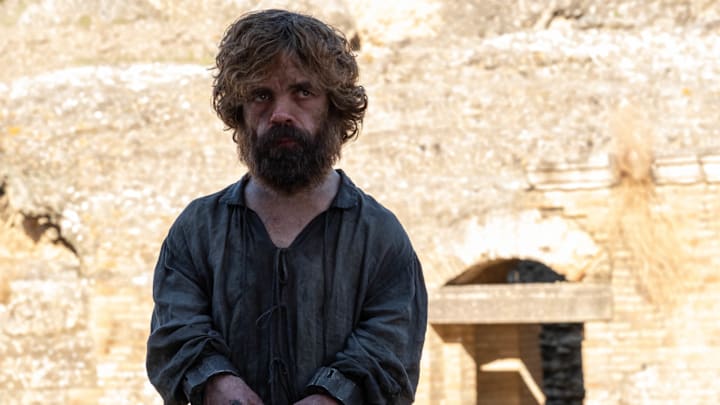
Now, look. I don’t disagree with the fact that Bran’s selection to become king happened too fast, mainly spurred on by a speech Tyrion gives which serves a meta stand-in for the show’s writers to reflect on the power of good stories. Given everything we’ve seen of Westeros, it would have been great to get a bit more time seeing these houses quarrel and come to terms with this decision. After all, it’s a huge ask, and most of the people in the Dragonpit aren’t familiar enough with Bran to know that he’s basically a living demigod. For the audience to be convinced, we really needed to see the characters raise objections and be won over in a realistic manner as well.
But disagreeing with the idea that Bran becomes king in general? That I don’t jive with. From the first time I read A Game of Thrones, I always wondered why Bran Stark was the very first point-of-view character we meet in the story after the prologue. A Song of Ice and Fire is a huge, ensemble tale, and George R.R. Martin is the kind of author who doesn’t make choices like that without very specific reasons. What significance would Bran hold for the larger saga?
Having him end up becoming the king is both a fulfilling end to Bran’s arc — here’s a boy who grew up dreaming about being a knight and hero, now bearing a responsibility that few others could handle — as well as a logical resolution to the conflict in Westeros. Bran is above worldly concerns, and we saw countless times on Game of Thrones that petty, worldly concerns were the undoing of the great houses. That even when they had the literal end of the world approaching, some of them couldn’t set aside their differences face it. Electing a ruler like Bran in the wake of all that bloodshed makes sense.
Adding to all this is the fact that George R.R. Martin revealed three huge twists to Benioff and Weiss. The third and final of those twists was something “at the very end.” It’s entirely possible that Bran was a part of that final twist, and his eventual rise is something Martin has had planned for his series for years.
Then again, there’s another big twist at the end that had people outraged as well…but we’ll talk about that shortly. First, we need to take a trip back down memory lane to the early seasons of Thrones, and one of its most reviled characters:
Joffrey Baratheon is one of the best characters in Game of Thrones
Surprise! You thought this was all just going to be defending season 8? We have other hot takes to discuss, from my lips straight through your heart like a dagger.
Game of Thrones had many beloved characters and just as many characters that viewers loved to hate, but few villains left as big of a mark as Joffrey Baratheon. The incestuous son of Cersei Lannister and Jamie Lannister, Joffrey ascended to the Iron Throne after King Robert’s death in season 1. He then proceeded to be the most awful person imaginable for three more season of television, doing everything from having Ned Stark beheaded to mentally torturing Sansa, acting cowardly at the Battle of the Blackwater, chopping up a rare book given to him by his Uncle Tyrion and far too many other enraging acts to list them all.
No one would dispute that Joffrey is awful. George R.R. Martin excels at writing loathsome villains; combined with a spectacular performance by actor Jack Gleeson, the maladjusted teenage king practically leapt off the screen and made us all root for his death for years on end.
But beneath all that is a dark, horrible secret that few Thrones fans will say out loud: Joffrey Baratheon is actually one of the best characters in the series. That’s why we all love to hate him so much. He’s gripping to watch, a ticking time bomb where you never know what terrible thing he’ll think of to do next. At the same time, we’re given to understand that he ended up this way for a reason. Kids can grow up to be pretty monstrous when they believe they’re born to rule over other people.
Beyond how effectively drawn Joffrey is, his spontanaeity is also a huge driver for the story. Game of Thrones quite literally would not be Game of Thrones without Joffrey. Ned Stark would have went off to the Wall and joined Jon’s fight against the White Walkers, Sansa would probably not have been hardened into a woman capable of outmaneuvering Littlefinger and ruling the North, Arya wouldn’t have sought revenge with the Faceless Men, and on and on. Even Joffrey’s death served as a catalyst to send Tyrion on a world-spanning journey to meet Daenerys Targaryen.
Yes, Joffrey is the worst. But part of why he’s the worst is because he is a masterfully realized character, better than many others in the saga. It’s not Joffrey’s fault if all that pressure went to his head.
Robb Stark kind of deserved to get betrayed at the Red Wedding
Our next point of discussion pains me to write, but I’m going to do it anyway. Robb Stark, the Young Wolf, was a heroic Thrones character who united the Northern houses in a war against the Lannisters after his father was taken prisoner. But we don’t really remember him for that; we remember him for the horrifying death that he, his wife Talisa and his mother Catelyn Stark suffered at the hands of the Freys in season 3.
Known as the Red Wedding, this traumatic event bonds all Game of Thrones fans. To this day it remains one of the most tragic reading experiences I’ve ever had, and the television show captured it perfectly. When the Freys turn on Robb, you’re terrified and outraged. This fantasy world is so unfair. Why do heroes like Robb Stark always end up brutally murdered?
Well, because Westeros is peopled with realistically terrible people, and those willing to bend their morals to fit the system are usually more likely to succeed than those who stick strictly to their ideals. Or so Game of Thrones would have us believe, at least in its early seasons.
Yet for as terrible as the death of Robb Stark was…it was also warranted in its own way. I’m not saying he deserved such a horrible death, with his wife and mother murdered around him. But did he deserve to be betrayed by the Freys in some way? Yeah. Yeah, he did.
This is something that George R.R. Martin makes relatively explicit in his novels. The impetus for the Red Wedding is that early in the war, Catelyn enters Robb into a betrothal pact with House Frey so that he can cross through their fortress and secure a crucial victory. However, Robb then marries someone else in secret, and backs out of the deal with the Freys.
In the books, this is painted as two warring obligations forcing Robb to make a bad decision. He sleeps with a young woman from a noble house named Jeyne Westerling, and rather than dishonor her, he marries her. He lets his idealism guide him to keep Jeyne’s honor intact, and subsequently slights a powerful house whose support he needs because he wasn’t thinking clearly of the bigger picture, which leads to a lot of people dying.
The show makes Robb’s motives even more selfish, because he marries Talisa out of love. There’s no idealogical conflict for television Robb Stark; he simply meets someone else and then throws a solemn vow made in his name out the window. Is it any wonder the Freys were angry?
I wouldn’t wish an awful death on Robb and Talisa, certainly not being stabbed to death at dinner. But it’s pretty understandable that the prickly House Frey would turn their back on him after he proved to them he couldn’t be counted on to keep his word.
That’s the thing about Westeros. You never know who’s a good guy, and whose decisions will lead those around them to ruin:
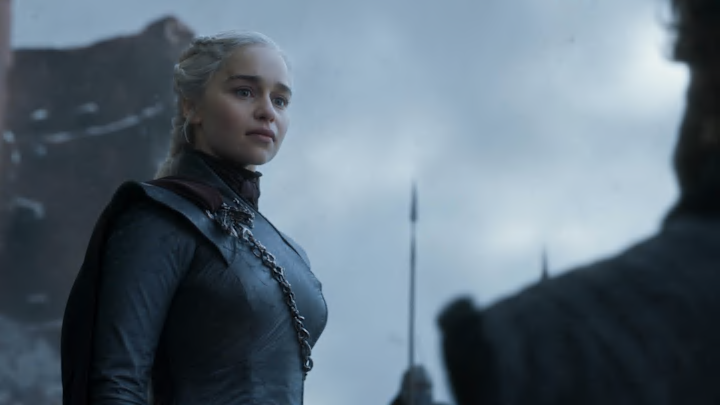
Daenerys Targaryen was always going to become evil
We arrive here at the last hot take of the day, and one I still regularly get into arguments about with friends and colleagues: Daenerys Targaryen’s heel turn. This was a huge point of contention for Game of Thrones season 8, which depicted Dany’s slide from being a beacon of hope to those around her to a megalomaniacal warlord willing to scorch thousands of innocents with her dragons because some bells started ringing in her head.
I love Dany as much as the next person. We rooted for her ever since the first season of the show, where she was sold off to Khal Drogo as a slave wife only to eventually birth the first dragons the world had seen in more than a century. Daenerys is a borderline messianic figure, who goes around freeing slaves in Essos before she heeds the call from Jon Snow to join the fight against the White Walker army. She makes war on Cersei Lannister, pretty much the worst/best villain on the show. How can we not cheer Dany on?
All this made it more than a little painful when she snapped in the show’s penultimate episode, “The Bells,” and burned swathes of King’s Landing to the ground after the city had already surrendered.
Many have rightfully criticized the speed of Dany’s heel turn. It seems like the show really rushed the turn in its final season by basically having everyone around Dany treat her like garbage in a way that strained belief. She and her dragons and Unsullied just helped save the world, and no one wants to give her the time of day at the Stark banquet after? Come on.
But for any problems I had with how Dany’s heel turn happened, I do think it’s pretty indisputable that this dark fate was always in store for her. Dany was always going to turn bad. The signs were there early and often — crucifying Meereenese nobles without checking to see which were bad and which weren’t, trying to use blood magic to bring back her dying husband against everyone’s advice, feeding a captive noble to her dragon, torching Samwell Tarley’s family, take your pick. Hell, rewatch the scene where Dany’s brother is murdered by her husband right in front of her all the way back in season 1, and her chilling, distant reaction that “He was no dragon…fire cannot kill a dragon.” That is not the way a healthy, stable person reacts to a death.
Yes, there are many reasons Dany goes down this dark path…but isn’t that the same of Joffrey, or Cersei, or Jaime, or so many other people who do horrible things in Game of Thrones? George R.R. Martin — and by extension the HBO show — is expert at putting you into the lives and minds of other people, helping you understand why they act the way they act, only to then pull the rug out and force you to watch them do the unthinkable.
Earlier I mentioned how Martin revealed three twists to Benioff and Weiss, with the final one being something right at the end of the series. Bran’s rise as king may have been part of that, but for my money, I think that Dany burning King’s Landing and Jon subsequently killing her for it was the main thrust of that final huge twist. The foreshadowing is there in Martin’s books as well; it’s just even more subtle than it is in the television show. And that sort of cynical twist — that even characters striving to do good things can become horrible when driven far enough in the pursuit of power — is exactly the sort of thing I would expect from Martin, given some of his other works. It’s got his authorial stamp all over it.
But hey, he’s still writing A Song of Ice and Fire. If you’re still upset about Dany’s heel turn, you can always imagine it’ll go differently whenever the books are finished. Just don’t be surprised if you get hurt again.
